a. Figure (a) shows the optical axis of a lens, the point source of light A, and its virtual image A′ . Trace the rays to find the position of the lens and of its focuses. What type of lens is it?
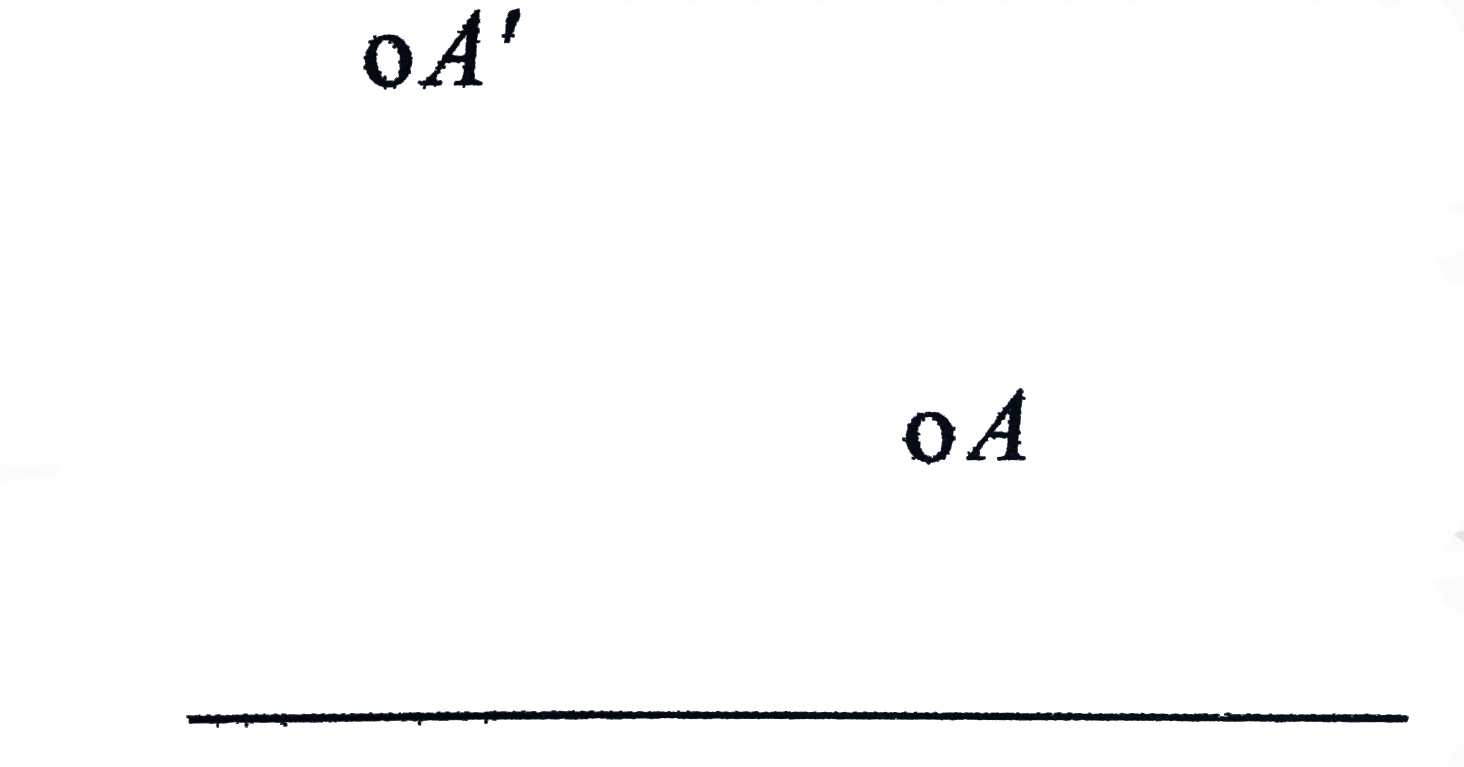
b. Solve the problem similar to the previous one using Figure.
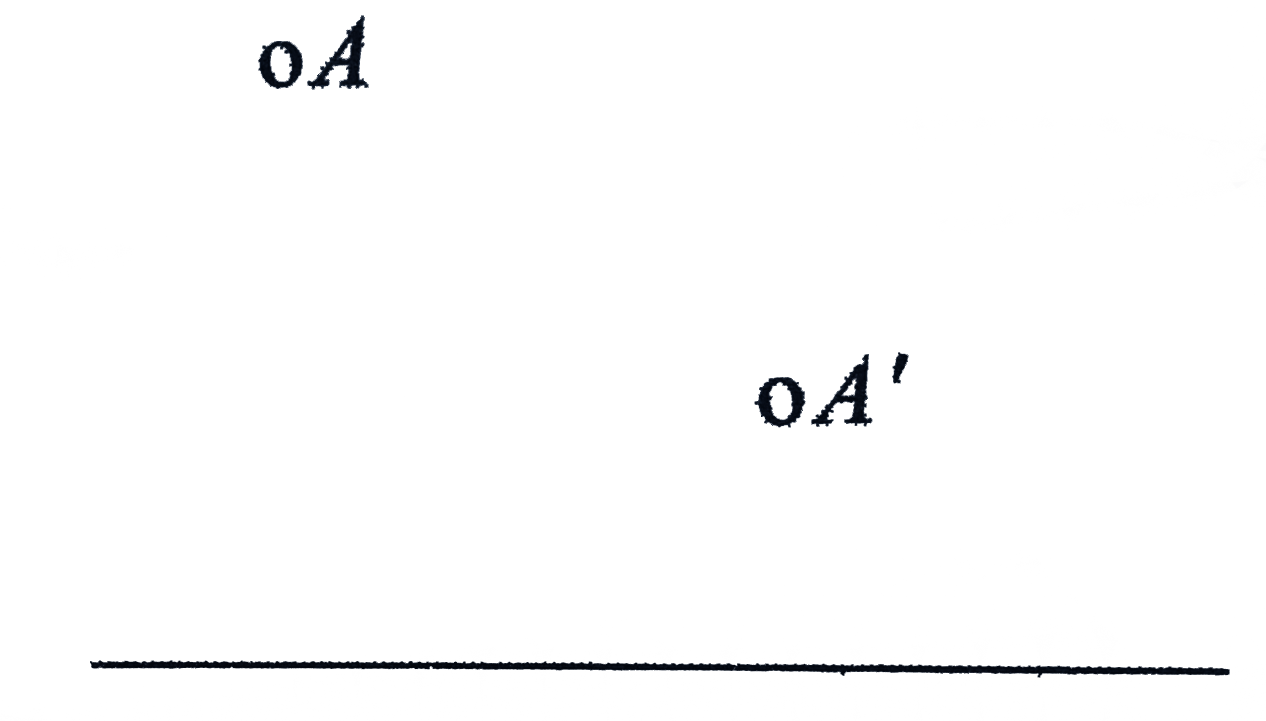
The correct Answer is:C
First draw a ray AA' until it intersects with the
principal optical axis and find the centre of the lens
C. Since, the virtual image is magnified, the lens is
convex.
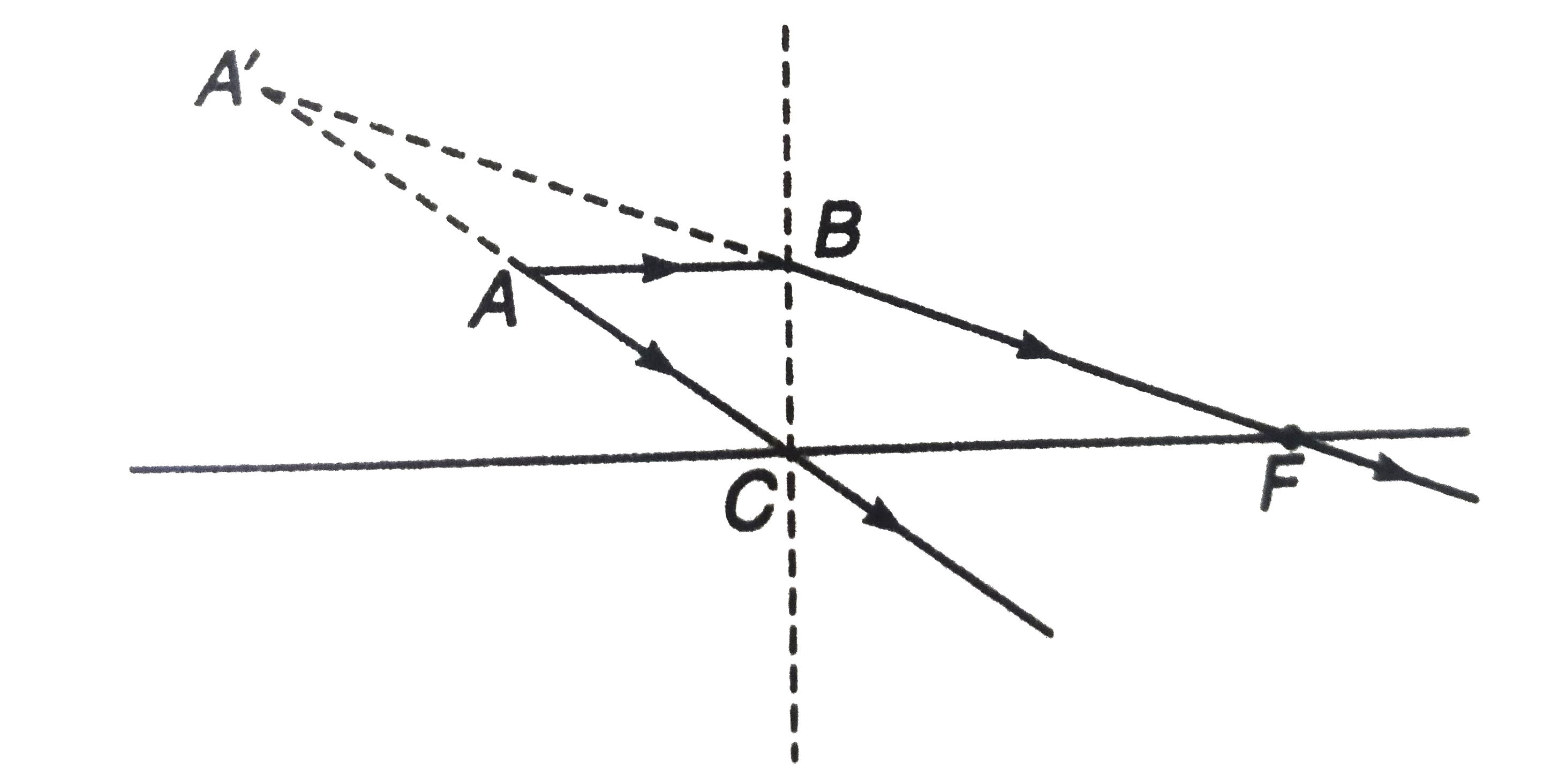
Draw a ray AB parallel to the principal optical axis.
It is refracted by the lens so that it passes through its
focus and its continuation passes through the virtual
image. The ray A'B intersects the principal optical
axis at point F, the focus of the lens.
Topper's Solved these Questions
- REFRACTION OF LIGHTBOOK - DC PANDEY ENGLISHCHAPTER - REFRACTION OF LIGHTEXERCISE - Level 2 Comprehension Based
3 Videos
- REFLECTION OF LIGHTBOOK - DC PANDEY ENGLISHCHAPTER - REFLECTION OF LIGHTEXERCISE - Subjective
9 Videos
- SEMICONDUCTORSBOOK - DC PANDEY ENGLISHCHAPTER - SEMICONDUCTORSEXERCISE - Subjective
12 Videos
Similar Questions
Given an optical axis MN and the positons of a real object AB and its image A'B', detormine diagramatically the positon of the lens (its optical centre O) and its foci, it it a converging or diverging lens? Is the image real or virtual?
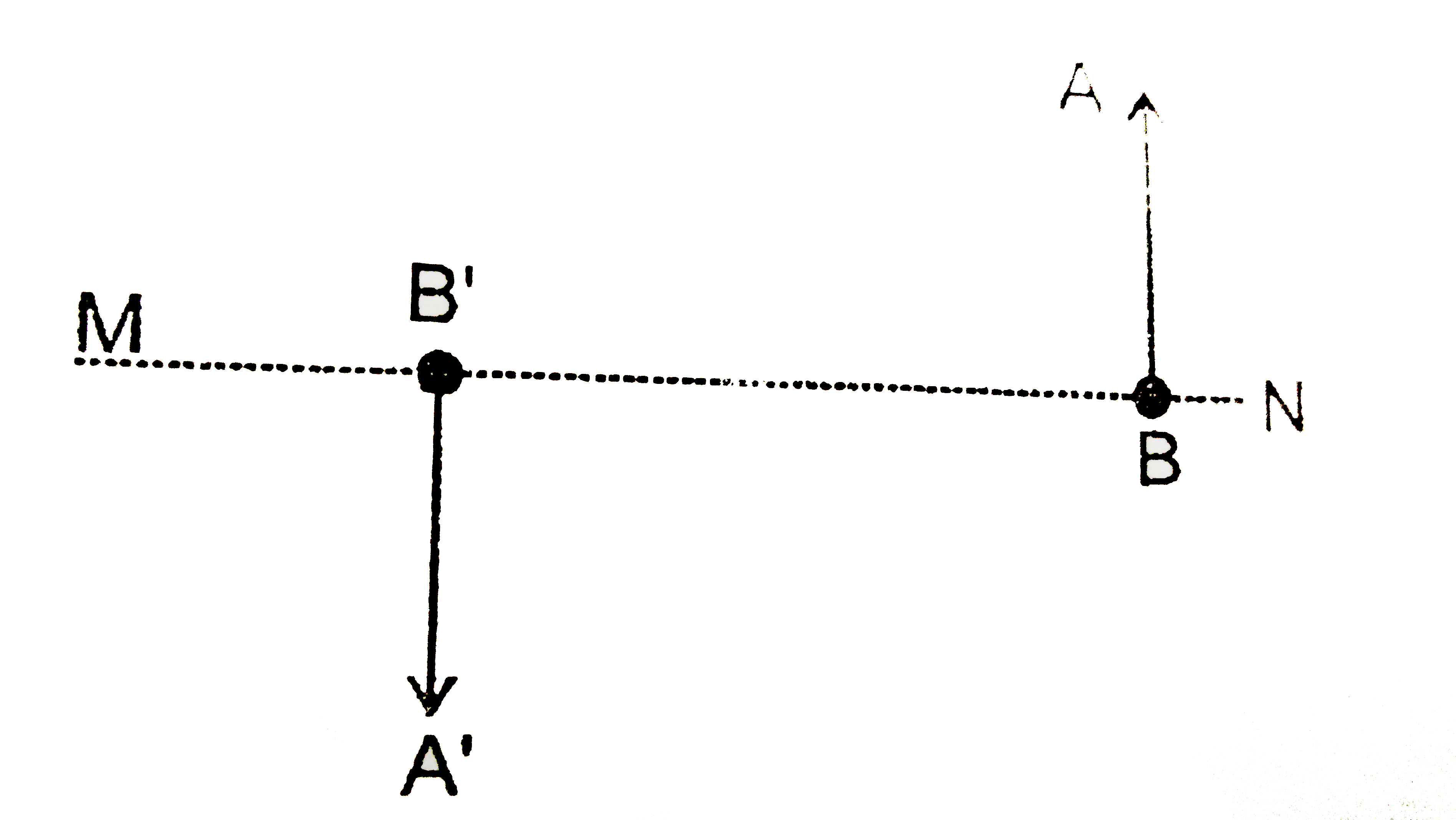
View SolutionA glass wedge with a small angle of refraction θ is placed at a certain distance from a converging lens with a focal length f ,one surface of the wedge being perpendicular to the optical axis of the lens. A point sources S of light is on the other side of the lens at its focus. The rays reflected from the wedge (not from base) produce, after refraction in the lens , two images of the source displaced with respect to each other by d. Find the refractive index of the wedge glass. [Consider only paraxial rays.]
_E01_162_Q01.png)
View SolutionAB is the optic axis of a lens. Lens is not shown in the figure. O and I are the position of object and image. Then match of following.

View SolutionIn Figure. , the length of object AB is 9cm. Find the nature and position of the final image and also its length. Assum that each lens is a thin lens.
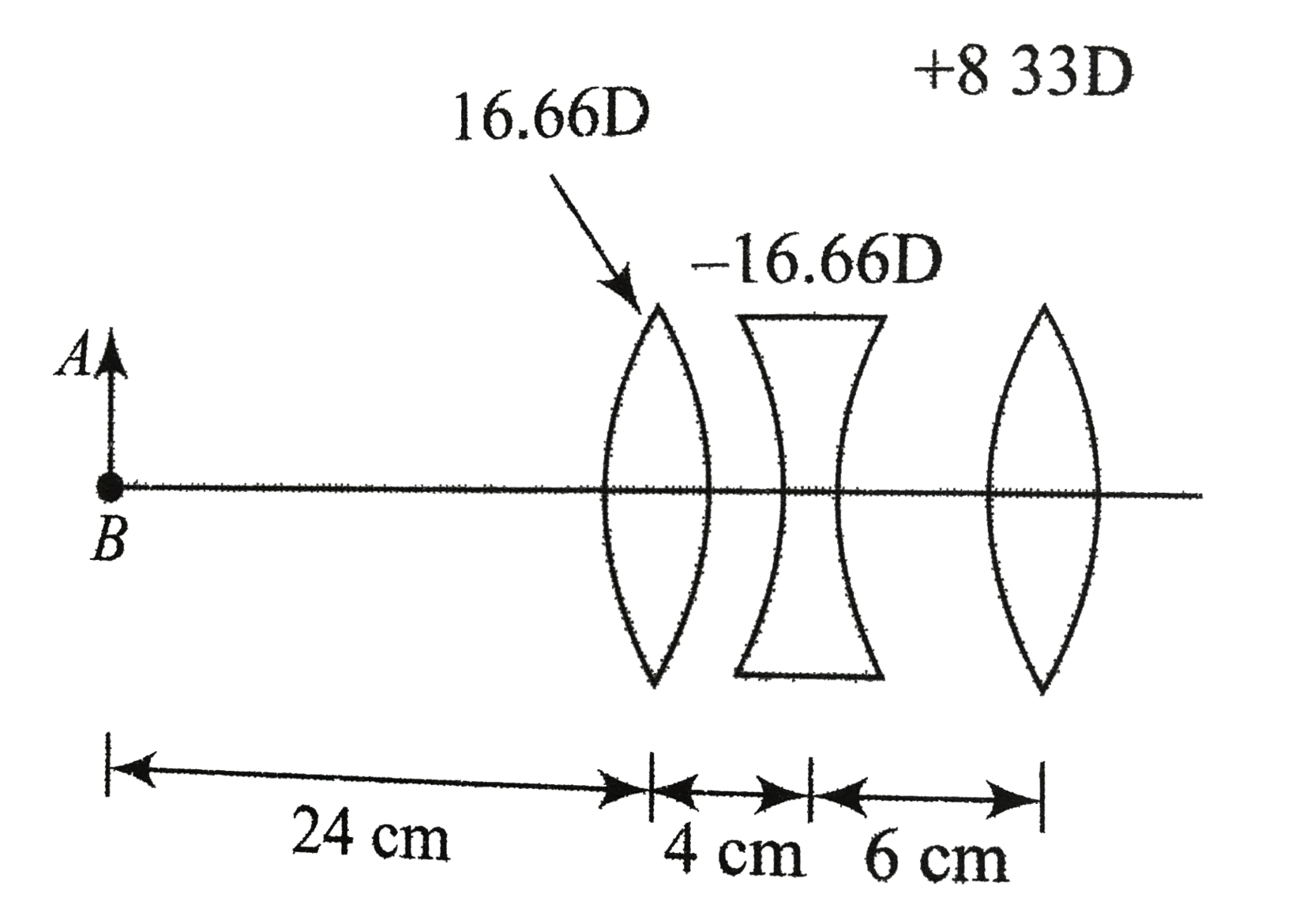
View SolutionA lens if placed between a source of light and a wall. It forms images of areaA1 and A2 on the wall for its two different positions. The area of the source or light is
View SolutionPoint S′ is the image of a point source of light S in a spherical mirror whose optical axise is N1N2 (shown in Figure). Find by construction the position of the center of the mirror and its focus.
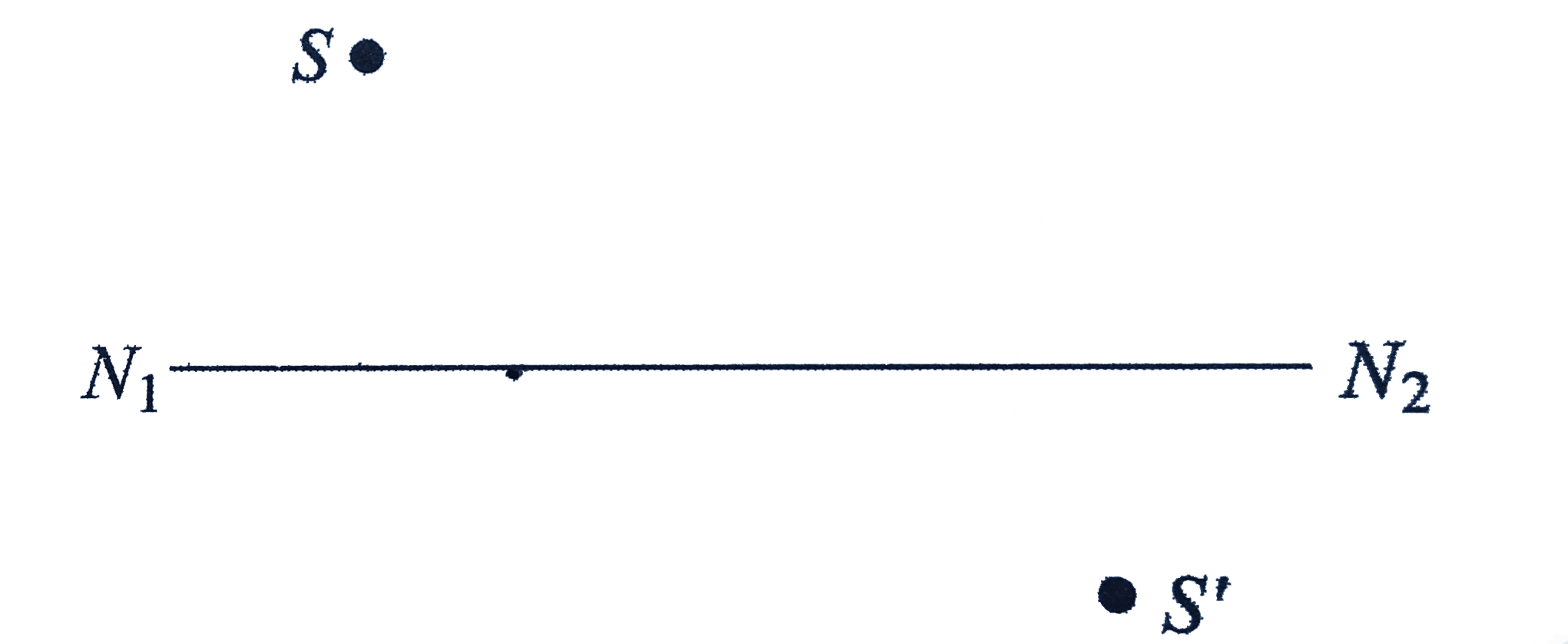
View SolutionA point source of light is kept at a distance of 15cm from a converging lens,on its optical axis.The focal length of the lens is 10cm and its diameter is 3cm ,A screen is placed on the other side of the lens ,perpendicular to the axis of lens,at a distance 20cm from it.Then find the area of the illuminated part of the screen?
View SolutionA point source is placed on the axis of a symmetrical convex lens of focal length 20 cm at a distance of 40cm. If the lens is raised by 1cm, by how much will the image be lifted relative to the previous axis?
View SolutionA light ray parallel to the principal axis is incident (as shown in the figure) on a thin planoconvex lens with radius of curvature of its curved part equal to 10 cm. Assuming that the refractive index of the material of the lens is 4/3 and medium on both sides of the lens is air, find the distance of the point from the lens where this ray meets the principal axis. Find your answer in the form X7cm and fill value of X .
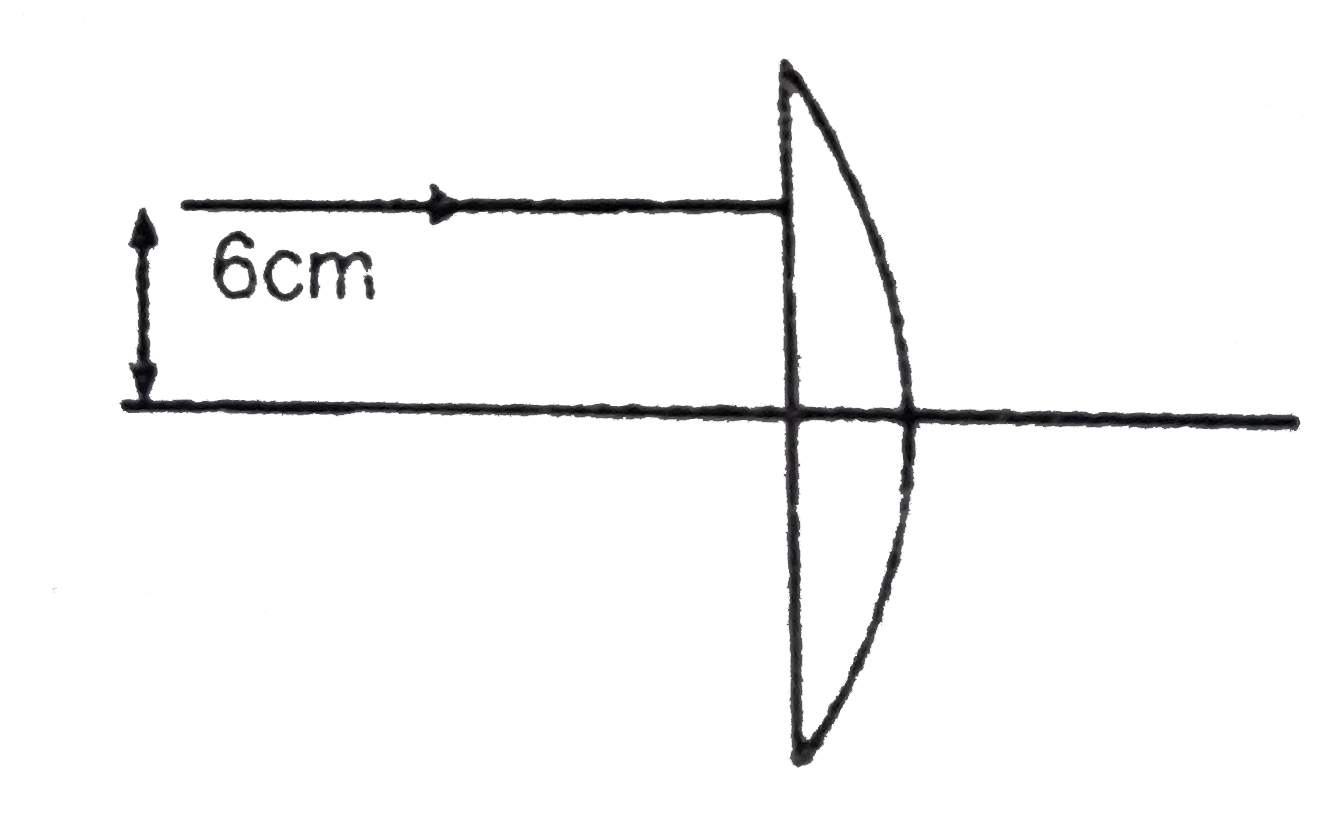
View SolutionA lens is placed between a source of light and screen. It forms real image on screen for two different positions. If height of one image is 20 cm and the other is 80 cm, then the height of source of light (in cm) is_____.
View Solution